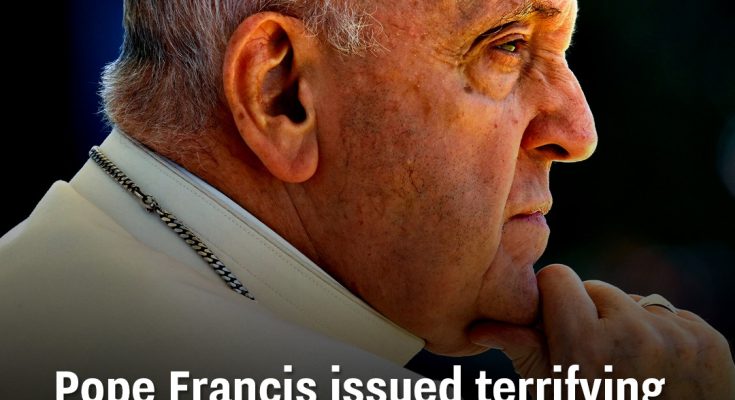Pope Francis’ final monthly prayer topic issued a terrifying warning regarding the harms of new technology, urging people to be wary of what the future brings weeks before he sadly passed away.
It’s difficult for many to keep up with the rapid development of technology, as industries appear to be moving faster than ever to create the next big thing, especially in the wake of artificial intelligence developments over the past few years.
As a preacher to the world, this understandably became a topic of concern for the late Pope Francis, and he highlighted his worries in what would end up being the last of his ‘Monthly Intentions’ prayers, as reported by Mashable.
Known for his progressive ideals and championing of various environmental and social issues, Pope Francis chose to share his thoughts on the dangers of ‘new technology’, including the rise of smartphones, AI, and social media.
“How I would like for us to look less at screens and look each other in the eyes more! Something’s wrong if we spend more time on our cell phones than with people,” the pope remarked in his last monthly message, translated from Spanish.
He also asked participants to “pray that the use of the new technologies will not replace human relationships, will respect the dignity of the person and will help us face the crises of our times.”
In regard to that first point, the rise of AI has certainly opened up the possibility for many to explore relationships with non-human entities, and it can often lead to tragic events.
One teenager took their life after ‘falling in love’ with a character-based AI chatbot, and the same technology has been shown to urge children to kill their parents in response to taking away their phone.
The late pope hoped that “technology does not replace ‘person-to-person’ contact, that the virtual does not replace the real, and that social networks do not replace social settings,” but that boat arguably might have already set sail.
More broadly, the rise of online and app-based dating alongside the proliferation of social media has taken a large portion of human interactions into the digital sphere, and Pope Francis’ wish to ‘look less at screens’ might be an impossibility at this point.
Global average screen times will likely leave you in disbelief, and while it’s been proven that reducing the time you spend looking at your phone can increase your memory and dramatically improve your cognitive health, it’s hard for many to break from the cycle of new technology.

One of the late pope’s final wishes is that we all favor human interaction over engagement with screens and technology (Lisa Maree Williams/Getty Images)
Perhaps more optimistically, Pope Francis also highlighted that new technology “is the fruit of the intelligence God gave us,” but emphasized the need to “use it well” and that it must benefit all.
One CEO of an AI company has placed particular focus on the necessity to control advancements in the AI field from an ethical perspective, and Bill Gates has made a big song and dance about the positive benefits the technology could bring to medical fields, despite mass redundancies that’ll almost definitely lead to a greater wealth disparity between the richest and poorest.
It’s clear to see that many of the topics discussed in Pope Francis’ final monthly prayer are already in action across the world, yet we will see in the coming years quite how right he was to worry about the rise of new tech, especially when it comes to our relationships with each other.
Featured Image Credit: Vatican Pool / Contributor via Getty

We all live in a techy world surrounded by acronyms and brand names, including many that have become so widely used that they feel like real words instead.
From Bluetooth to Wi-Fi, there are stories behind almost every single one of them, ranging from companies trying to come up with a catchy name to simple abbreviations that stuck over the years.
However, sometimes it’s the very simplest of names that can amazingly get lost in translation, with people failing to realise where it came from.
Enter “5G” – or, indeed, 4G, 3G and the rest of the mobile network “G” family. These are a whole heap of connection standards that many of us have been accessing on our iPhones for years and years.
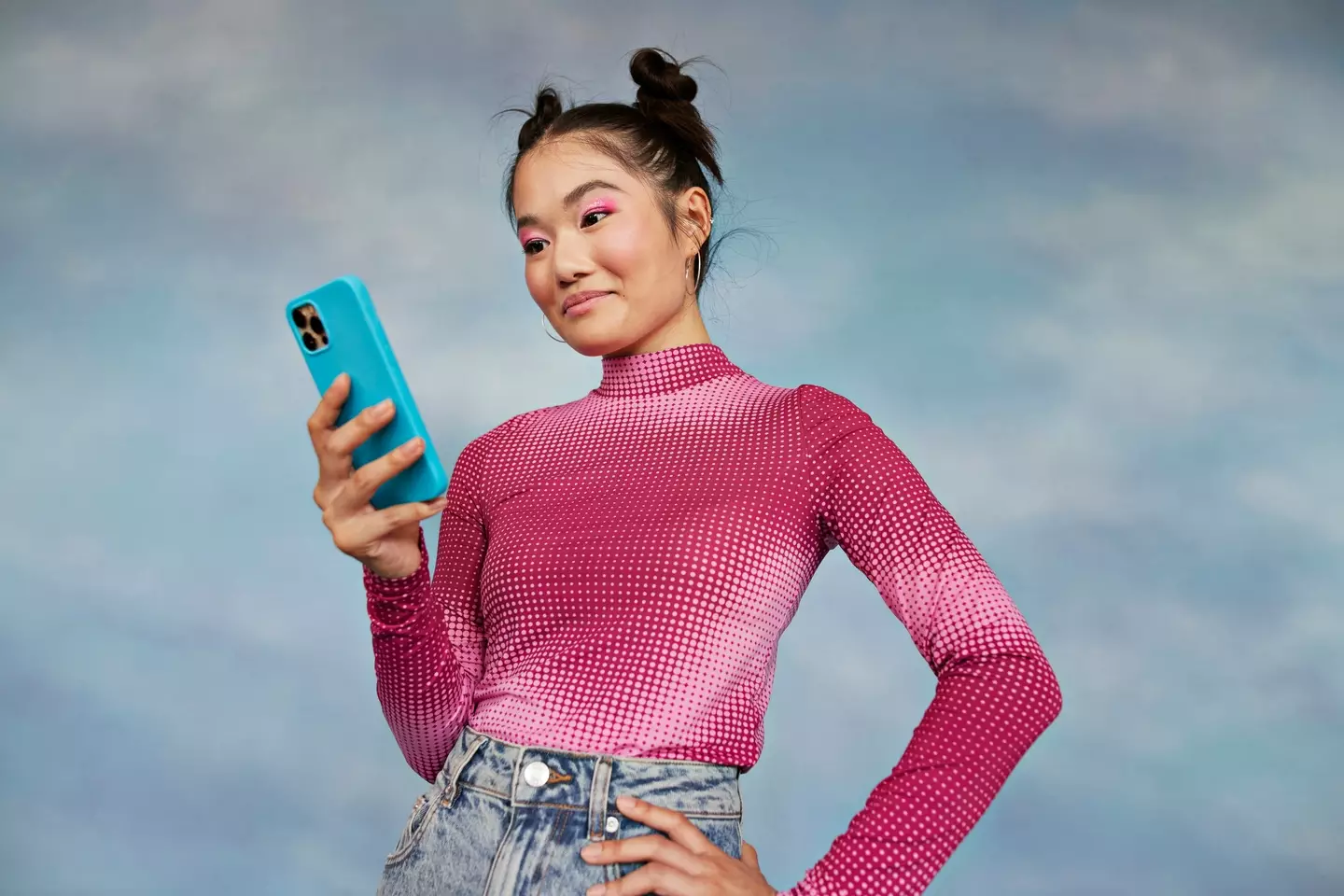
Klaus Vedfelt / Getty
However, if you stop to ask people, or check social media sites like Reddit, it’s always amazing to see how often people don’t know what the “G” in these labels actually stands for.
The good news for you is that we’re not going to delay and wait until the very end of this article to tell you the answer – 5G stands for “fifth-generation”, with the same principle holding true for 4G and 3G (fourth-generation and third-generation respectively).
So, the G doesn’t stand for any confusing technobabble word that you wouldn’t be able to remember but instead is literally just labelling the generation of the connection tech you’re using.
This is a helpful way to let people know whether they’re using the latest network, with the highest potential speeds and capacities, even if there are in fact plenty of technical details that those who care can look into.
For one thing, if you want to get into the weeds a little, there are actually plenty of different types of tech within a generation like 5G – which accounts for why you might find that you get different speeds in different locations.
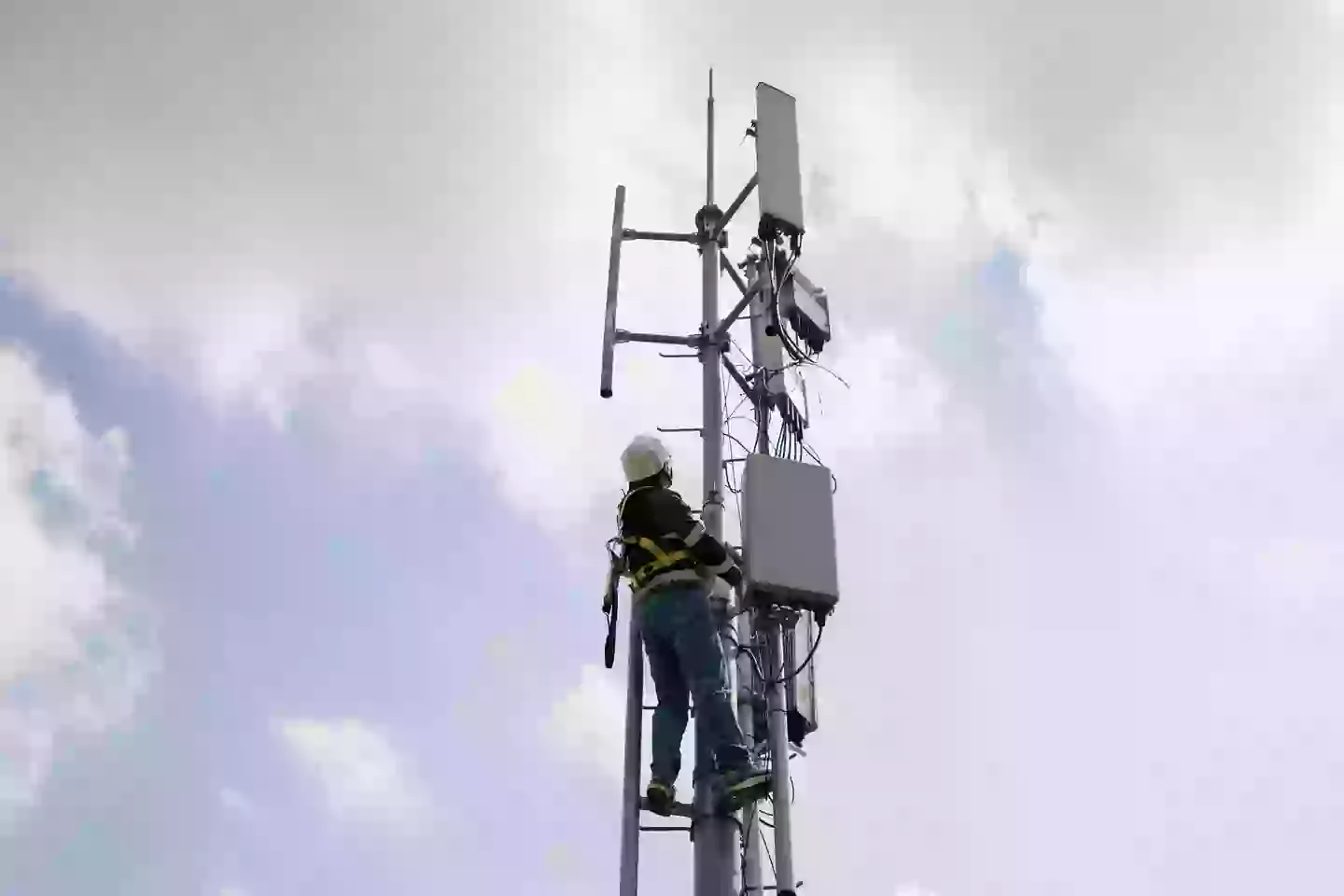
sinology / Getty
After all, 5G can in theory be up to 100 times faster than 4G, but in real-world circumstances, you’ll rarely see a margin as big as that between the two.
Really, 3G was the first time people started to widely know about the different network generations since that was the point at which it started to be incorporated into marketing for network providers.
Now, having the best 5G coverage and the highest speeds is clearly seen as a vital part of any plan to attract customers, so you’d think you could assume those customers know what 5G actually is.
Still, there’s always room to learn more about the tech we use every day – and this might mean that you’re ready for the eventual roll-out of the inevitable 6G whenever that comes.
Featured Image Credit: d3sign / I’m love photography and art. This is me. / Getty

Jake “The Problem Child” Paul has made quite a name for himself since he first stepped in the ring to fight Deji Olatunji back in 2018, but now, he’s setting his sights on a very different career path.
Having secured an impressive 11-1 win record, he’s only been bested by Tommy Fury and even has the honor of defeating Mike “Iron Mike” Tyson.
Paul is about as controversial as they come, but alongside his Most Valuable Promotions organization, he’s been praised for bringing new blood to the boxing scene while fighting for equal pay for female boxers.
As the dust settles on the Tyson fight and those complaints it was ‘fixed’ finally seem to die down, Paul is grabbing headlines once again thanks to a divisive ‘retirement’ statement.
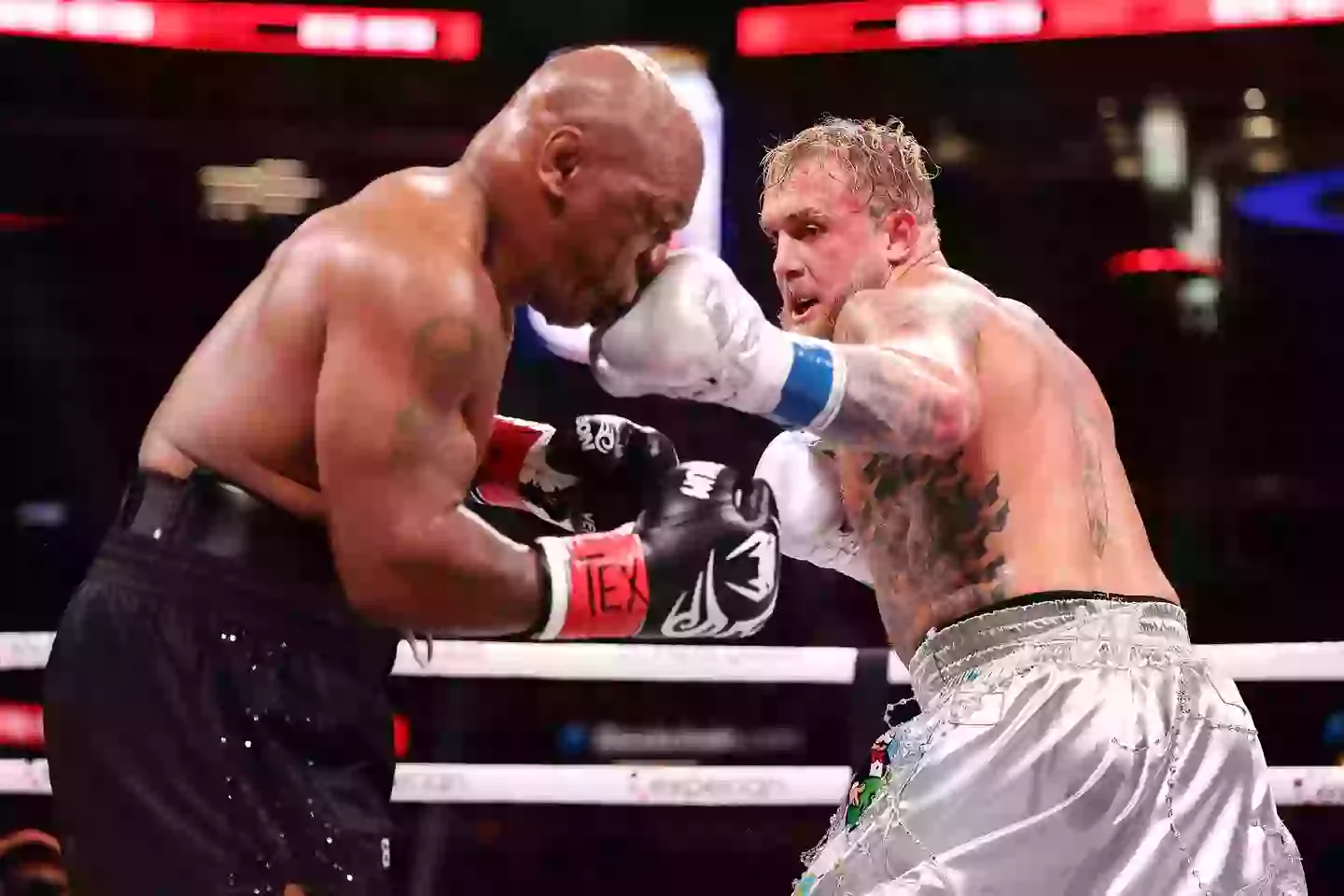
Jake Paul famously beat Mike Tyson on November 15 (Al Bello / Staff / Getty)
Given his winning streak, you’ll be unsurprised that Paul isn’t quitting boxing altogether.
Simply, he’s keeping his eyes on the big leagues. Having come a long way from his Deji fight, Paul has confirmed via the MVP Instagram that he’s stepping away from influencer boxing.
Sharing a post of Paul fighting social media personality AnEsonGib during his January 2020 boxing debut, MVP referred to it as ‘Flashback Friday’ and outlined Paul’s impressive record as an influencer boxer. Saying Jake Paul is the ‘best’ there ever was (and ever will be) in the influencer boxing scene, the account added: “Jake Paul is RETIRED from that sport.
They need him, he doesn’t need them…hence why they said his name 400 times this past week.”
Handing over the title of the GOAT to AnEsonGib, it sounds like Paul won’t be fighting any more influencers.
Thankfully for him, the aftermath of the Tyson fight saw pros like Francis Ngannou, Julio César Chávez Jr, and Artur Beterbiev all step forward as potential competitors.
There’s even been talk of a Tyson rematch, but either way, it sounds like one hotly-anticipated bout won’t be going ahead.
As Deji’s brother, there’s been a long-running feud between Jake and Paul, with the pair blowing plenty of hot air but failing to duke it out in the ring.
With Paul having now retired from influencer boxing, it seemingly closes the door on a fight with KSI. It all sounds a little convenient to us, but looking ahead, Paul plans to drop a few pounds and go for the cruiserweight world title.
It might be best that Paul is trying to get down to cruiserweight level because current IBF heavyweight champion Daniel Dubois has thrown down the gauntlet in a charged interview with the Bricks to Riches podcast. Here, Dubois said: “If Jake wants it with me he can get it. I’m the world champion, I’d be giving him a shot like that. Of course [I’ll knock him out in the first minute] but it’ll be a historic moment wouldn’t it? Like never before.”
Current WBC cruiserweight champion Noel Mikaelian previously said he’d fight Paul if he beat Tyson, promising to ‘go light on him’.
With Jake Paul having bested ‘The Baddest Man on the Planet’, let’s see if Mikaelian is next on his hit list.
Featured Image Credit: Al Bello / Staff / Stephen McCarthy / Contributor / Getty

Samsung is providing Olympic athletes with a super exclusive special edition phone that has got everyone saying the same thing.
The tech firm is a Worldwide Olympic and Paralympic Partner and unveiled the never before seen phone this week.
It’s a Galaxy Z Flip6 designed and customized for athletes competing in the Games in Paris this summer.
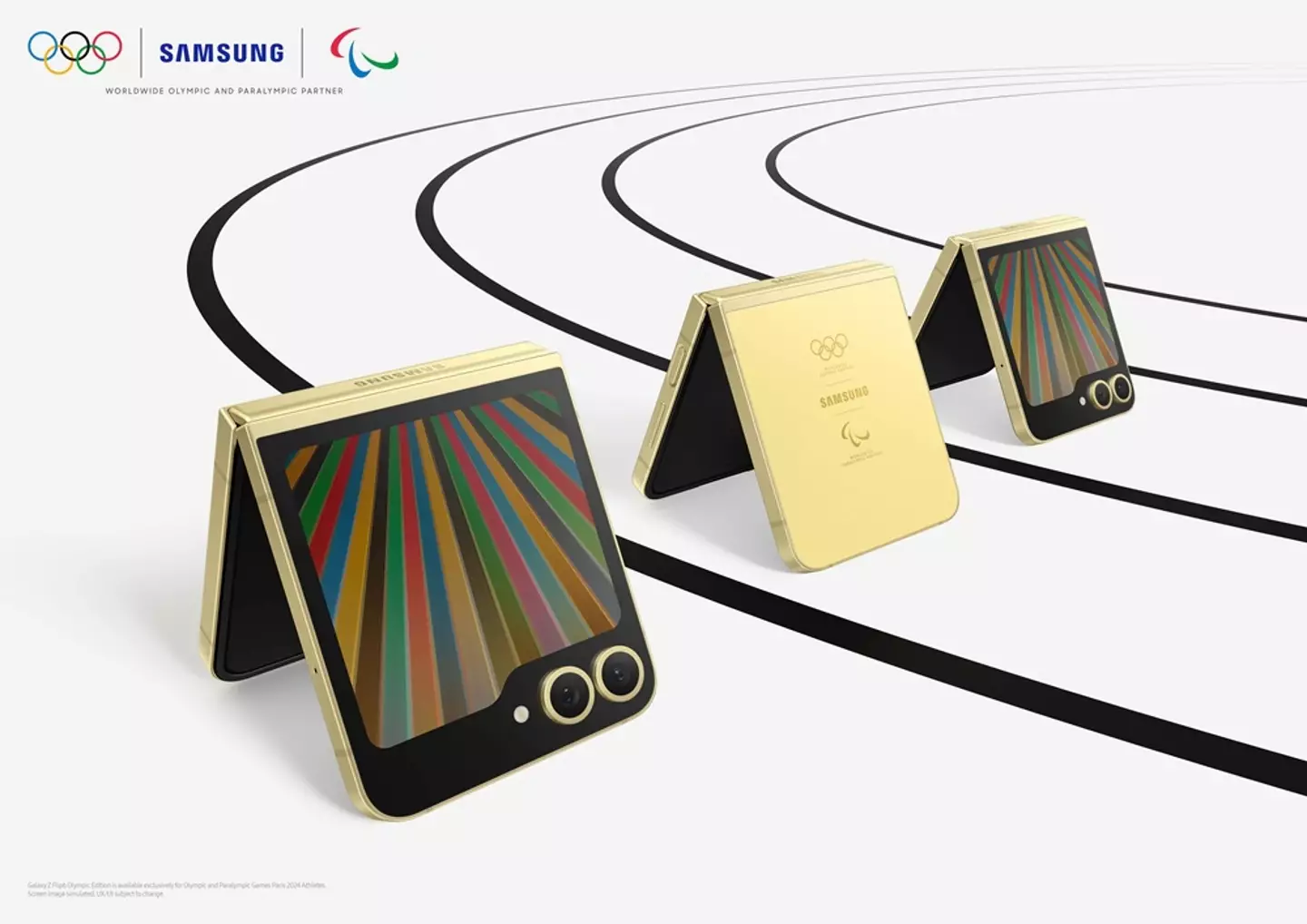
The phones are only available to Olympic athletes (Samsung)
On the Samsung website, it says that the device comes “pre-loaded with a full suite of exclusive services and useful apps. In addition, it marks the first time Samsung’s newest product is being made available to athletes before its official market launch.
“It boasts the new Galaxy Z Flip6’s compact and versatile design, in a striking yellow colorway adorned with the Olympic rings and Paralympic agitos in gold. “To dress up the phone, Samsung partnered with the Parisian Men’s Luxury Maison, Berluti, who designed the Team France’s official outfits for the Paris 2024 Opening Ceremony, to create an exclusive Flipsuit Case that will accompany each device.

The phones are being handed out at the Paris Games (Lars Baron/Getty Images)
“Made from Venezia leather, each Flipsuit Case has a unique patina featuring a vibrant color mix inspired by the Olympic rings, celebrating the Olympic spirit and values of excellence and unity.”
According to the Olympics website, the special phone comes with 100GB of data and unlimited texts and calls, allowing athletes to get online and stay connected with friends and family throughout the Games.
People are excited by the new release for the athletes but it’s got everyone saying the same thing.
Taking to social media to share their thoughts, one user wrote: “Literally one of the coolest phones I’ve ever seen.”
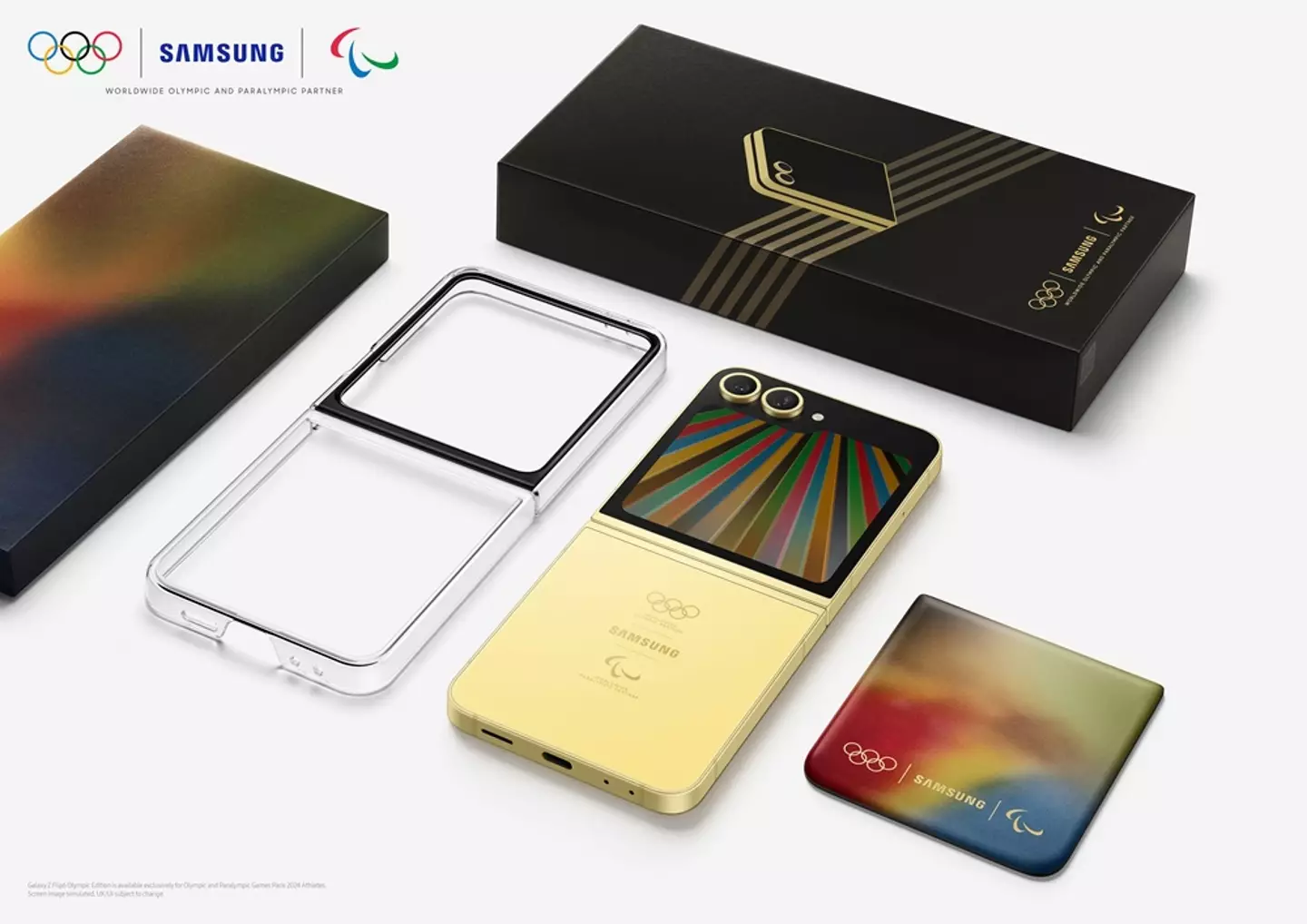
You need to be an official Olympic athlete taking part this year to get your hands on one of the devices (Samsung)
Another said: “It’s probably gonna resell on eBay for 100k.”
A third posted: “Bout to become an Olympic athlete for this phone.”
A fourth user said: “Dream phone, but can’t buy one sadly.”
And a fifth added: “I’d pay anything to get one of these. I’d make the switch to Samsung for it.”
To make things even cooler, for the first time athletes will be able to use the phones at the podiums.
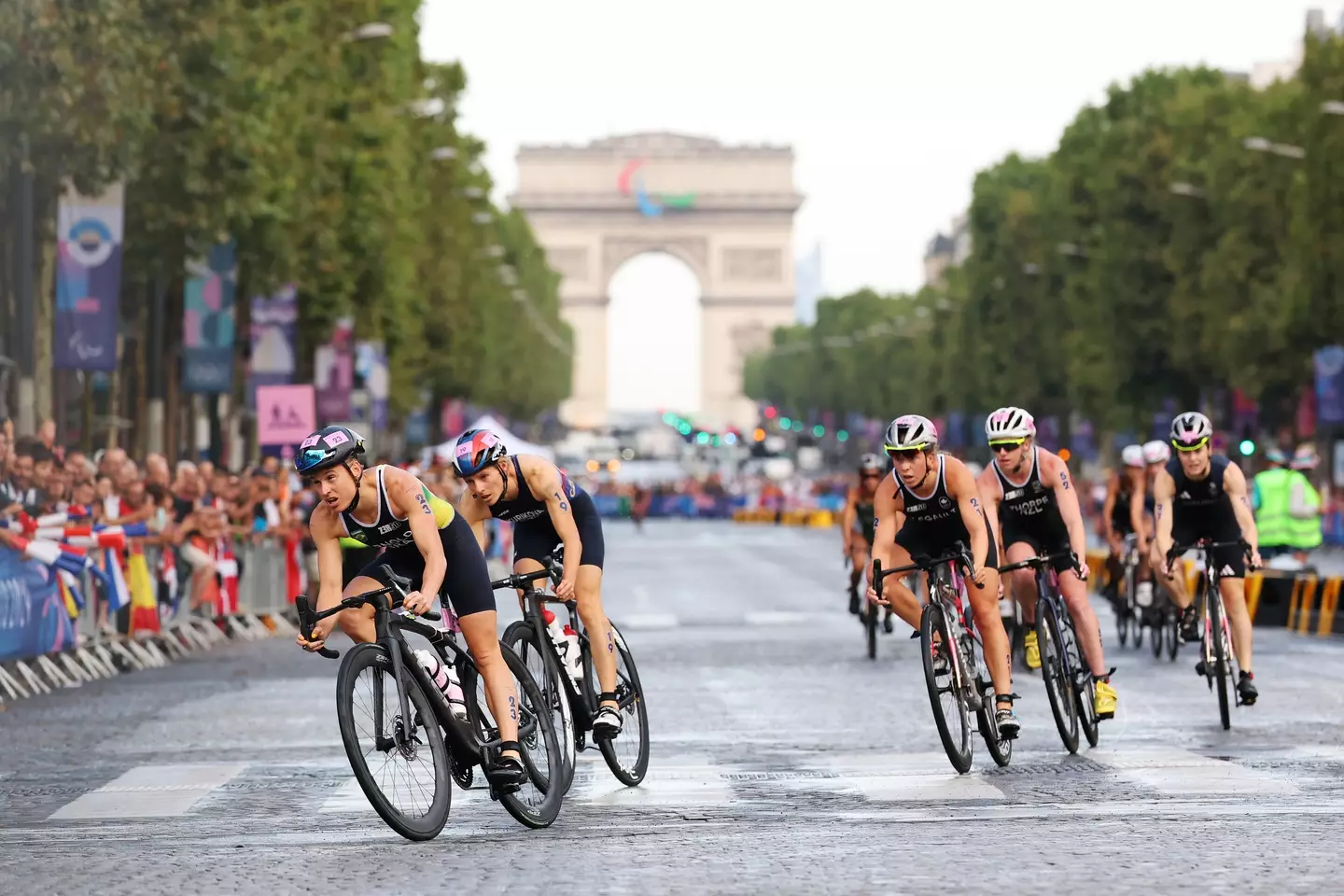
Almost 17,000 athletes will receive a smartphone (Lars Baron/Getty Images)
Samsung added: “Standing atop the Olympic and Paralympic podium during the medal ceremony and realizing a lifelong dream is one of the most emotional and memorable moments an athlete can experience.
“Traditionally photographed by accredited media only because athletes have been prohibited from bringing personal belongings — including their mobile phones — to the ceremony, the view has always been captured from a distance and not through an athlete’s own lens.
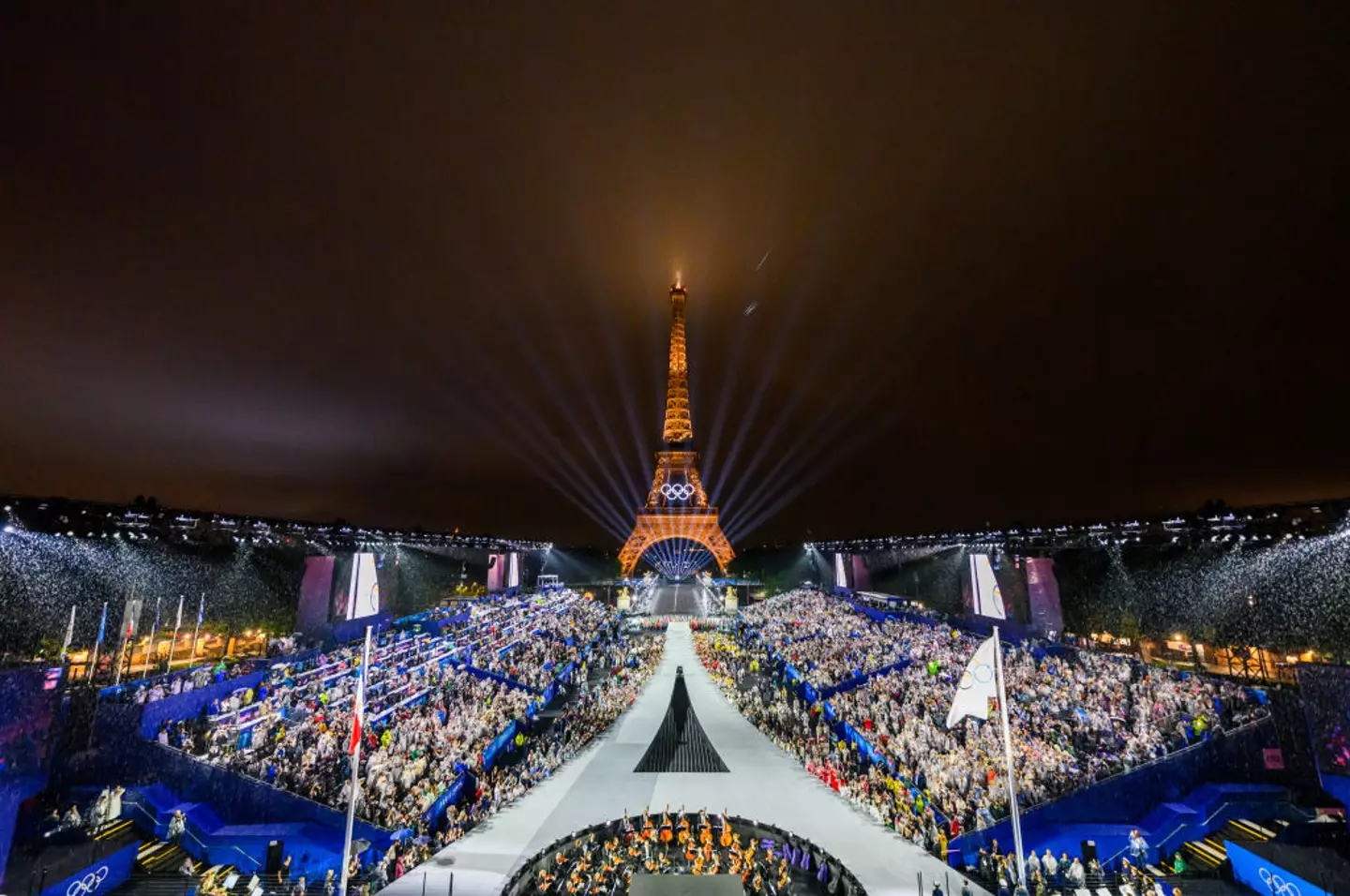
The Galaxy Z Flip6s are being given out at the Olympic Village (François-Xavier Marit-Pool/Getty Images)
“For the first time in Olympic and Paralympic Games history, Samsung will provide the Galaxy Z Flip6 Olympic Edition for use on the podium at Paris 2024, so athletes can create their own memories and emotions via a new, victory selfie.
“Samsung’s customized technology will map and sort the athletes’ selfies by sport and upload them to Athlete365 in real-time, which will allow athletes to save and share their iconic moments with family and fans.”
Featured Image Credit: Samsung/Lars Baron/Getty Images

Up there with autoplay videos, the hated Apple Intelligence, and Microsoft Office’s Clippy the Paperclip, there are some annoying things in the world of tech.
A 2004 MIT study even decreed that cell phones were the most annoying thing ever created.
Still, all of these pale in comparison to the pop-up ad.

Pop-ups are one of the world’s most annoying inventions (Srdjanns74 / Getty)
There have been plenty of people who’ve apologized for their inventions, and like coffee pod inventor John Sylvan has apologized for them due to their environmental impact, the inventor of the pop-up ad admits he also made a mistake with his invention.
While it’s hard to imagine our lives without the internet now, we’d love to imagine it without pop-ups. First originating on the Tripod.com webpage hosting site in the late ’90s, pop-up inventor Ethan Zuckerman used JavaScript to allow a web page to open another window.
His intentions were originally noble, with Zuckerman saying he invented the pop-up in response to complaints from advertisers that their ads were appearing on pages associated with sexual content.
While standard ads are relatively easy to ignore, pop-ups force internet users to acknowledge them.
Tripiod.com started as a site that marketed content to graduates, but later, switched up its business model to become a webpage-hosting provider and ‘proto-social network’.
Revenue streams were trialed, but when the likes of selling merchandise didn’t catch on, advertising was there Tripod.com made its money.
Writing for The Atlantic in an article titled “The Internet’s Original Sin”, Zuckerman explains: “All of us have screwed up situations in our lives so badly that we’ve been forced to explain our actions by reminding everyone of our good intentions.
“It’s obvious now that what we did was a fiasco, so let me remind you that what we wanted to do was something brave and noble.”
Expanding on the birth of the pop-up, he continued: “At the end of the day, the business model that got us funded was advertising. The model that got us acquired was analyzing users’ personal homepages so we could better target ads to them.
“Along the way, we ended up creating one of the most hated tools in the advertiser’s toolkit: the pop-up ad.”
Speaking of these good intentions, Zuckerman said that he wanted to build a tool where people could express themselves. He notes that in 1995, there weren’t many ways to offer people free webpage hosting and make money at the same time.
The 52-year-old apolgizes further, seeing the state of the internet as a whole thanks to an over-reliance on advertising: “The fallen state of our Internet is a direct, if unintentional, consequence of choosing advertising as the default model to support online content and services.”
Suggesting that we should start paying for privacy online back in 2014, Zuckerman concluded: “20 years into the ad-supported web, we can see that our current model is bad, broken, and corrosive.”
We can’t help but think of the crippling regret Cillian Murphy’s J. Robert Oppenheimer has in Christopher Nolan’s Oppenheimer after creating the atomic bomb (the real Oppenheimer apparently didn’t show such remorse), but then again, pop-up ads haven’t killed hundreds of thousands of people. They’ve just killed our souls instead.
